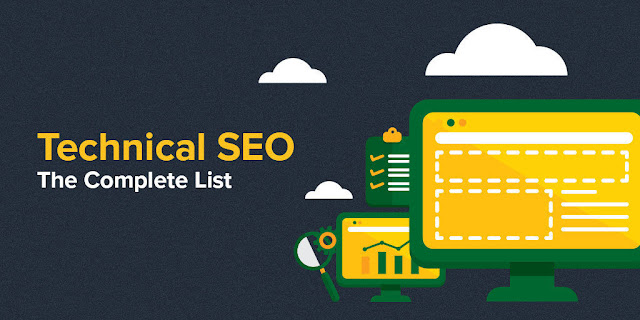Search Engine Optimization (SEO) is the art of optimizing websites to rank higher on search engine result pages (SERPs) and drive traffic to the site. Technical SEO, on the other hand, focuses on the technical aspects of a website to ensure that search engines can crawl and index the site efficiently. Technical SEO is a critical component of any successful SEO strategy as it can impact the site's visibility and rankings. In this article, we will discuss the essential technical SEO checklist that every website owner or developer should implement.
Here's the some Technical SEO Checklist:
1. Website Speed and Performance
Website speed and performance are critical ranking factors that affect user experience, and search engines prioritize user experience. A slow website can negatively impact user experience, resulting in a high bounce rate and low engagement rate. To improve website speed and performance, website owners should consider:
- Minimizing HTTP requests
- Enabling browser caching
- Minimizing CSS and JavaScript files
- Using a Content Delivery Network (CDN)
- Optimizing images and videos
2. Mobile-Friendly Design
Mobile-friendliness is another crucial ranking factor as mobile devices now account for over half of all internet traffic. To ensure that a website is mobile-friendly, website owners should:
- Use responsive design
- Avoid Flash content
- Use large, easy-to-read fonts
- Ensure that the site is easy to navigate on a small screen
3. Website Security
Website security is essential to protect user data and prevent hacking attempts. A secure website can also improve user trust and credibility. Website owners should consider implementing:
- HTTPS protocol
- Two-factor authentication
- Regular software updates
- Regular security audits
4. Structured Data
Structured data is a standardized format used to provide context to search engines about the content on a website. Structured data can improve the chances of a website appearing in rich snippets and knowledge graphs. Website owners should consider implementing:
5. XML Sitemap
An XML sitemap is a file that lists all the pages on a website and provides search engines with information about the site's structure. A well-structured XML sitemap can improve the chances of a website being indexed and crawled by search engines.
6. URL Structure
A well-structured URL can provide search engines with information about the content on a page. Website owners should consider implementing:
- Short, descriptive URLs
- Using hyphens to separate words
- Avoiding special characters and symbols
7. Robots.txt
A robots.txt file is a file that tells search engines which pages of a website should not be crawled or indexed. A well-structured robots.txt file can improve the efficiency of search engine crawling and indexing.
8. Canonicalization
Canonicalization is the process of selecting the preferred URL for a page when multiple URLs can access the same content. Website owners should consider implementing:
- Setting a preferred domain
- Using rel="canonical" tags to identify preferred URLs
9. Broken Links and Redirects
Broken links and redirects can negatively impact user experience and search engine rankings. Website owners should regularly check for broken links and redirects and fix them promptly.
10. Website Accessibility
Website accessibility is the practice of designing websites to be accessible to people with disabilities. Accessibility can improve user experience and make a website more inclusive. Website owners should consider implementing:
- Alt tags for images and videos
- Using descriptive link text
- Providing transcripts for audio and video content
Conclusion
Technical SEO is a crucial aspect of website optimization that should not be overlooked. By implementing the above checklist and staying up-to-date with the latest best practices, website owners can ensure that their websites are crawlable, indexable, and user-friendly. Moreover, by regularly monitoring website performance and making necessary improvements, website owners can stay ahead of the competition and improve their overall search engine rankings. So, make sure to prioritize technical SEO in your website optimization strategy to achieve your desired online success.
Related Post: 10 Tips for Successful On-Page SEO
Technical SEO Checklist:





0 Comments